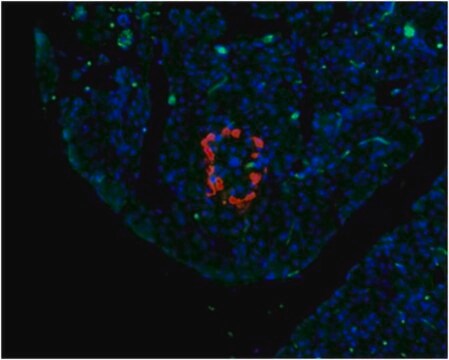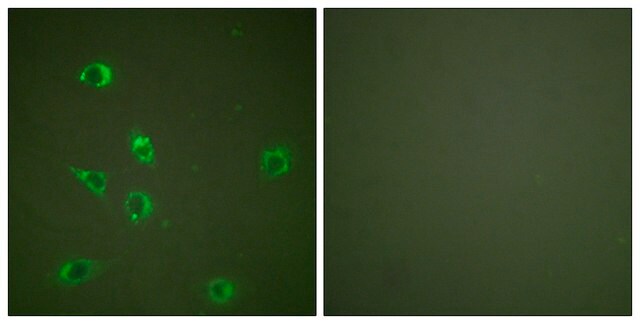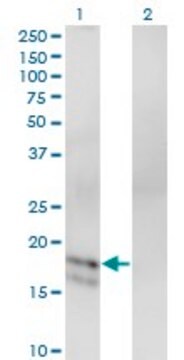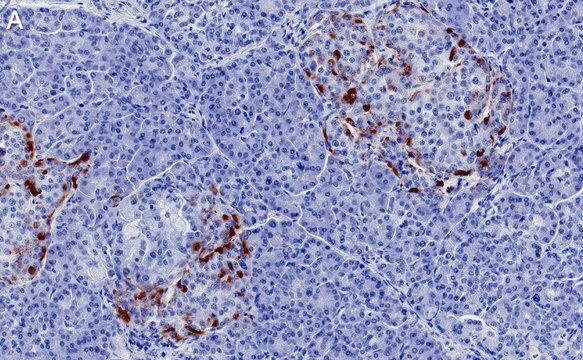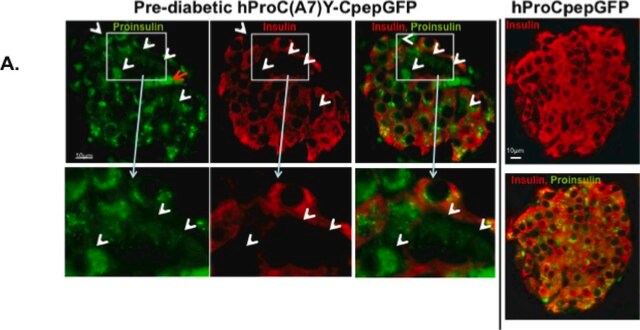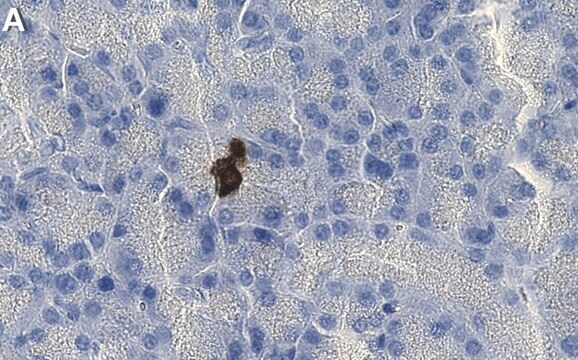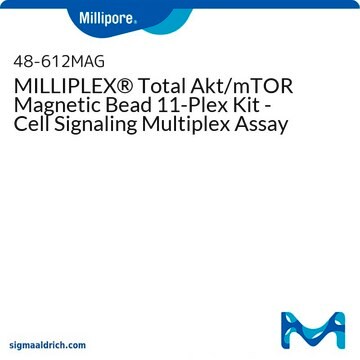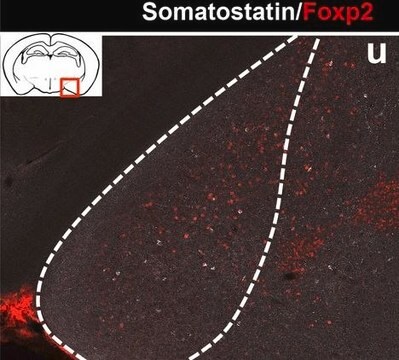SAB4200685
Anti-Glucagon antibody, Mouse monoclonal
clone K79bB10, purified from hybridoma cell culture
Sinónimos:
Monoclonal Anti-Glucagon antibody produced in mouse, GCG, GLP1, GLP2, GRPP
About This Item
Productos recomendados
biological source
mouse
Quality Level
antibody form
purified immunoglobulin
antibody product type
primary antibodies
clone
K79bB10, monoclonal
form
buffered aqueous solution
species reactivity
cat, rabbit, mouse, guinea pig, rat, dog, porcine, zebrafish, human
packaging
antibody small pack of 25 μL
concentration
~1 mg/mL
technique(s)
immunohistochemistry: 5-10 μg/mL using heat−retrieved formalin-fixed, paraffin-embedded Rat pancreas sections and Biotin/ExtrAvidin®-Peroxidase staining system.
radioimmunoassay: suitable
isotype
IgG1
shipped in
dry ice
storage temp.
−20°C
target post-translational modification
unmodified
Gene Information
cat ... Gcg(101097825)
dog ... Gcg(403571)
guinea pig ... Gcg(100135526)
human ... GCG(2641)
mouse ... Gcg(14526)
pig ... Gcg(397595)
rabbit ... Gcg(100341777)
rat ... Gcg(24952)
General description
Immunogen
Application
Biochem/physiol Actions
Physical form
Legal Information
Disclaimer
¿No encuentra el producto adecuado?
Pruebe nuestro Herramienta de selección de productos.
Storage Class
12 - Non Combustible Liquids
wgk_germany
WGK 1
flash_point_f
Not applicable
flash_point_c
Not applicable
Elija entre una de las versiones más recientes:
¿Ya tiene este producto?
Encuentre la documentación para los productos que ha comprado recientemente en la Biblioteca de documentos.
Nuestro equipo de científicos tiene experiencia en todas las áreas de investigación: Ciencias de la vida, Ciencia de los materiales, Síntesis química, Cromatografía, Analítica y muchas otras.
Póngase en contacto con el Servicio técnico
